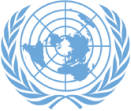Mr. Chairman,
1. I have the honour to deliver this statement on behalf of the Association of Southeast Asian Nations (ASEAN). ASEAN also aligns itself with the statement delivered by Indonesia on behalf of the Non-Aligned Movement (NAM).
2. ASEAN reiterates the importance of strengthening efforts to address global security challenges in a strategic and holistic manner in the area of disarmament and non-proliferation, recognizing challenges posed by current and emerging traditional and non-traditional security issues such as terrorism, and chemical, biological and radiological (CBR) threats, among others. These require all countries to strengthen cooperation in order to prevent and address common security threats in an effective and efficient way.
3. ASEAN reiterates its support towards the UN Secretary-General’s Agenda for Disarmament, particularly for “ensuring respect for norms against chemical and biological weapons concerns the interests of all humanity”. We strongly condemn the use of such weapons by any party under any circumstances as this constitutes a serious violation of international law. ASEAN is continuing its efforts to prevent the proliferation of weapons of mass destruction and implement all relevant treaties, as well as Security Council Resolution 1540. In this regard, ASEAN appreciates the constructive dialogue at the United Nations Security Resolution (UNSCR) 1540 (2004) Regional Industry Outreach Conference for Southeast Asia (Wiesbaden Process) co-hosted by Thailand, Germany and the U.N. Office of Disarmament Affairs (UNODA) in Bangkok on 6-7 September 2023.
Mr. Chairman,
4. Recognizing the threats and dangers of the existence and use of chemical, biological and radiological weapons, ASEAN continues to call for universal adherence to applicable international legal instruments prohibiting these weapons.
5. ASEAN recognizes the Chemical Weapons Convention as a successful multilateral agreement that seeks to eliminate, under international verification, an entire category of weapons of mass destruction. Since the first signing of the Chemical Weapons Convention 30 years ago, it has remained at the forefront of efforts to achieve a world free of chemical weapons and to promote the use of chemicals for peaceful purposes in accordance with international law and commendable progress has been achieved in its implementation through the efforts of the Organisation of the Prohibition of Chemical Weapons. All 10 ASEAN Member States are parties to the Convention. We urge those States that have not yet signed or ratified the Convention to do so as soon as possible, in the interest of achieving its universality.
6. We also reaffirm our commitment to the Biological and Toxin Weapons Convention (BWC) and recognizing the necessity of multilateral negotiations and noting the lack of a verification measure, the latter of which poses a challenge to the effectiveness of the BWC, welcome the establishment of the Working Group on the Strengthening the BWC by the Ninth Review Conference of the BWC. We also place great importance on enhancing international cooperation, assistance, and exchanges in toxins, biological agents, equipment, and technology for peaceful purposes.
Mr. Chairman,
7. In our region, ASEAN remains committed to improving regional capacity as well as international cooperation and assistance in addressing threats in this field.
8. Under the ambit of the Network of ASEAN Chemical, Biological and Radiological (CBR) Defence Experts, established in 2018, a number of meetings, visits, workshops and virtual table-top exercises have been organized in order to strengthen regional preparedness and cooperation against chemical, biological, and radiological threats. This includes the successful ASEAN CBR Defence Experts Technical Meeting for Harmonization of CBR Sampling and Analysis Reporting Protocol held in Singapore on 23-24 August 2023 and the Course on Investigation of Incidents Involving Toxic Chemicals for State Parties in Asia, which is scheduled to be held from 14 to 24 November 2023 in Singapore. The latter course is a capacity-building initiative within the framework of Article X of the Chemical Weapons Convention to strengthen regional experts’ capacity with initial and advanced incident site management and investigative approach principles.
9. In addition, the Regional Secretariat of the EU CBRN Center of Excellence in Southeast Asia has been working closely with the Network of ASEAN CBR Defence Experts to support efforts to identify CBRN risk mitigation needs, develop National CBRN Action Plans and formulate and implement regional project proposals. Building upon this cooperation, the Workshop on Detection, Response and Deterrence of Biological and Radiological Incidents which will be jointly organised from 30 October to 3 November 2023 in Singapore by the Secretariat of the Network of ASEAN Chemical, Biological and Radiological (CBR) Defence Experts, the European Union Chemical, Biological, Radiological and Nuclear Risk Mitigation Centre of Excellence (EU CBRN CoE), the United Nations Interregional Crime and Justice Research Institute (UNICRI) and the International Atomic Energy Agency (IAEA). This workshop aims to raise awareness of the applicability and importance of international law when managing prosecutions linked to biological and radiological incidents.
Mr. Chairman,
10. In conclusion, let me reiterate ASEAN’s firm commitment to the total elimination of all weapons of mass destruction and stress the importance of enhanced international support for States Parties in need of assistance to build national capacity for the implementation of treaties related to weapons of mass destruction in accordance with national and international law and the UN Charter.
I thank you, Mr. Chairman

